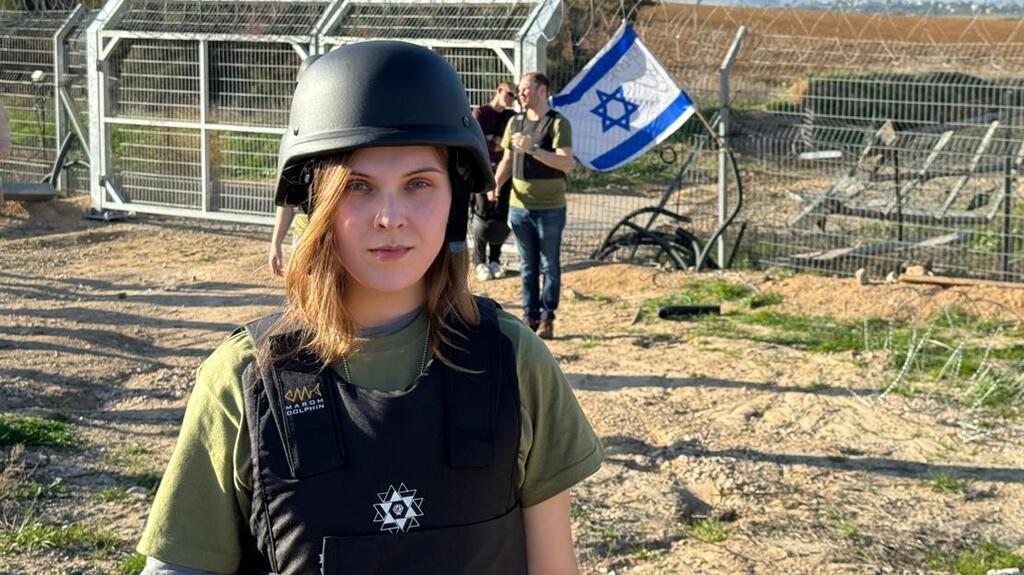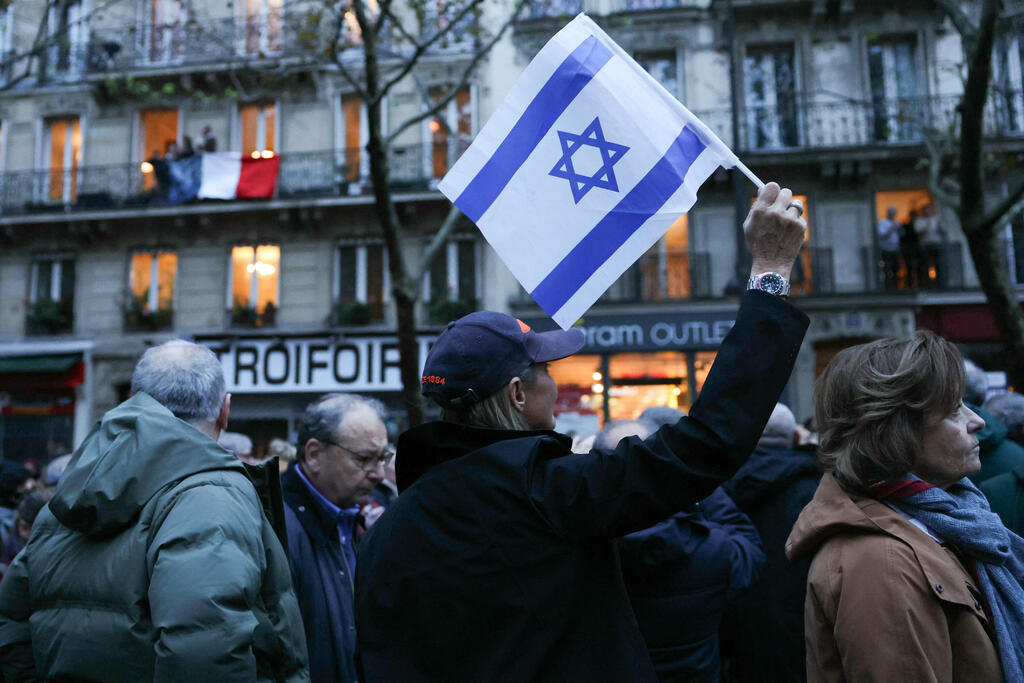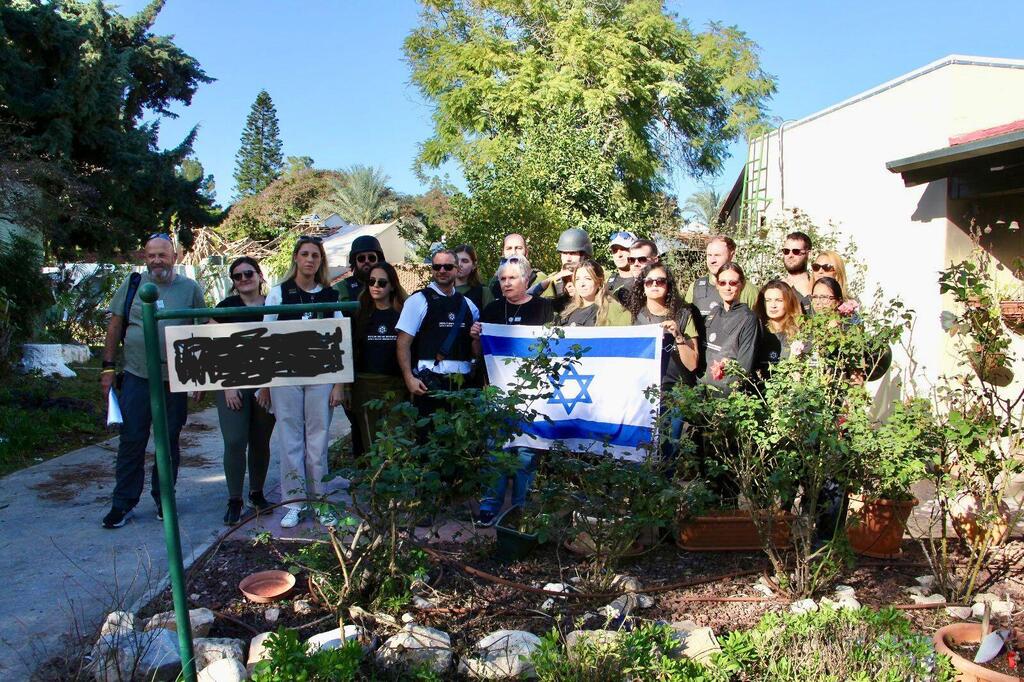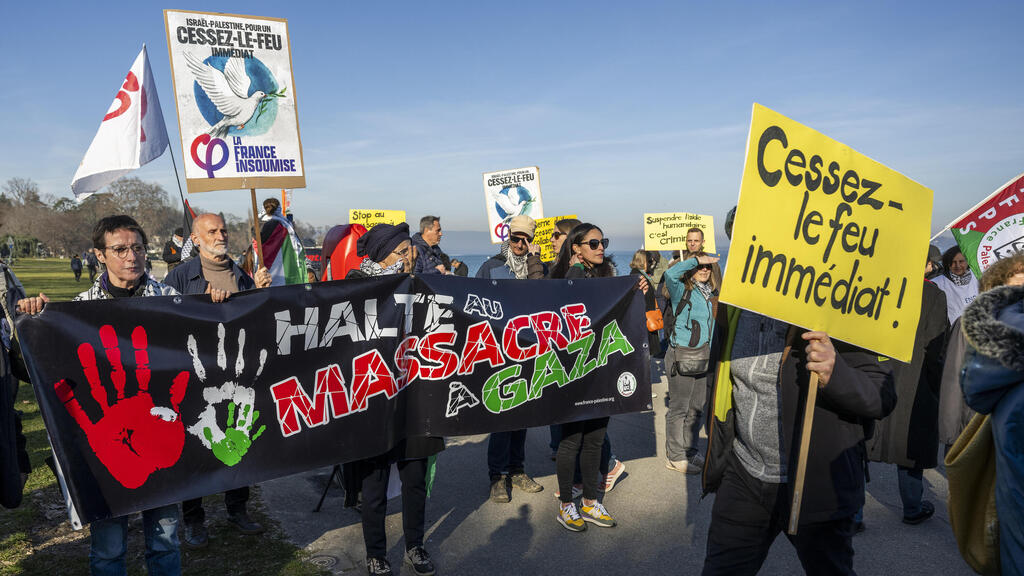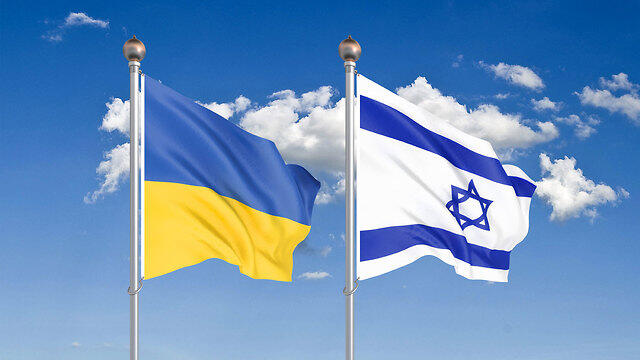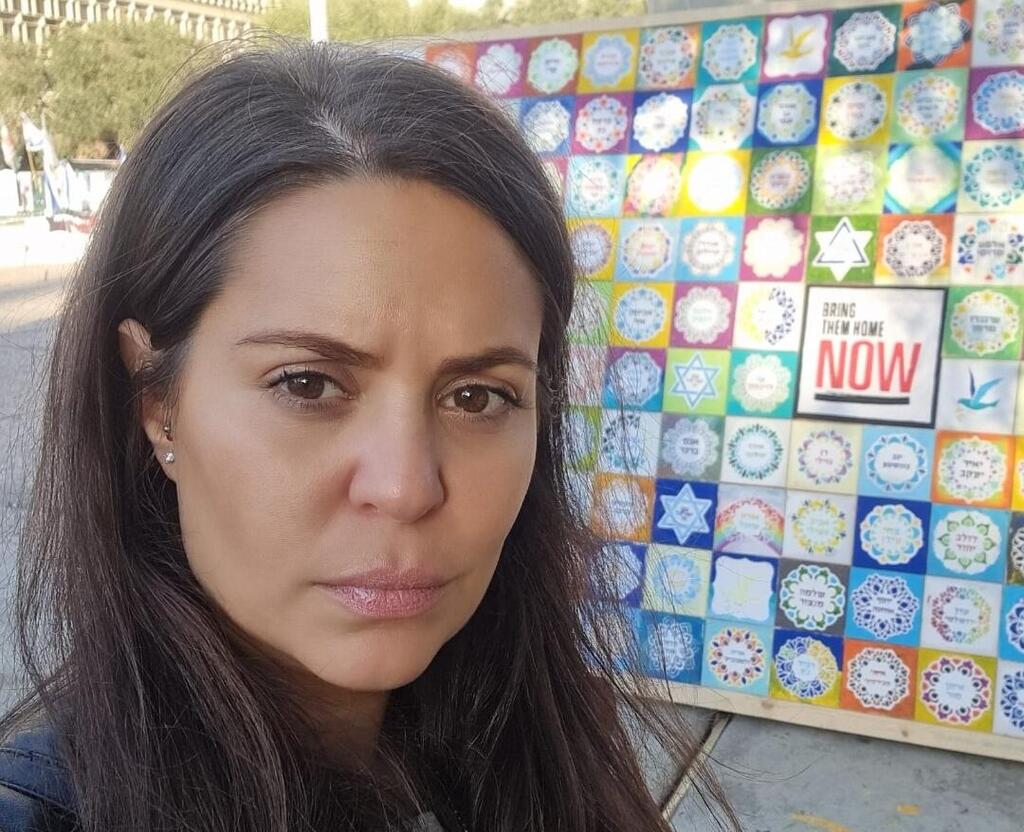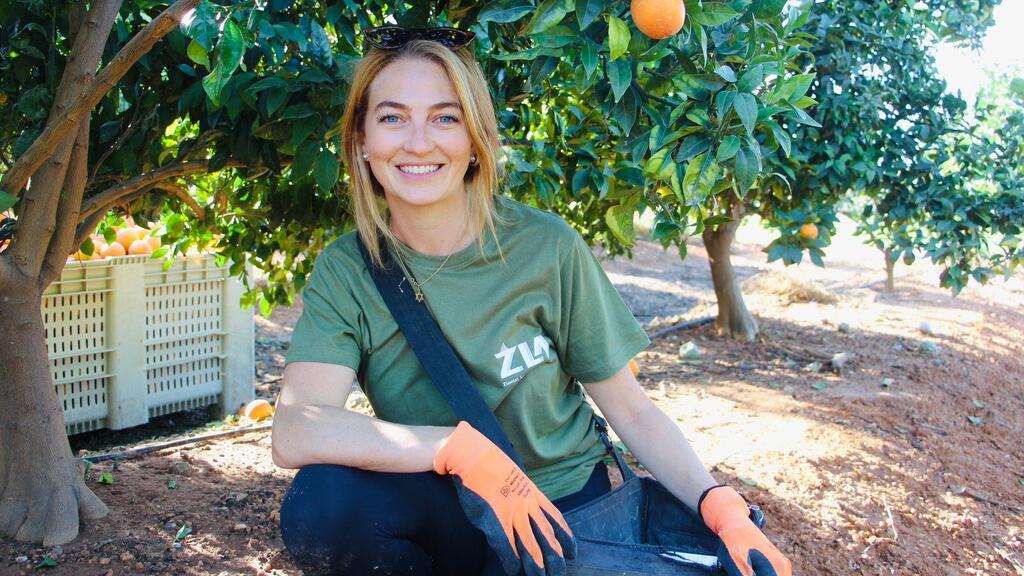How can future leaders of Jewish communities living outside of Israel defend and explain Israel's actions in a country where pro-Palestinian groups are prevalent? This is the challenge they face as they find themselves at the forefront of Israeli public diplomacy.
More stories:
“In these days of the war, the communicative efforts for the State of Israel are more important than ever, and it is amazing to see how just as in Israel everyone is united these days, so too are Diaspora Jews united, and this doubles the explanatory and cognitive power. I wish it would continue not only in moments of crisis,” said Lilia Liakhovych from Ukraine, Ilai (at his request, “for security reasons,” without a name or picture) from the Netherlands, Jill Meiteles from Germany, and Daniela Russowsky Raad from Brazil.
The quartet is part of the 18 future leaders of the world's Jewish communities, graduates of the Zionist Leadership Academy program of the World Zionist Organization, and Keren Kayemet LeIsrael. In the shadow of the war, they went on a lightning tour of Israel to see, with their own eyes, what they were struggling for.
They were exposed to the horrors of October 7, they visited hospitals and talked to the wounded, met the residents of the kibbutzim from the Gaza envelope communities that were hit on Black Saturday, including the families of the abducted, visited the area where the NOVA party was held near Re'im and the memorial that has been established in memory of the victims, and even volunteered and helped the farmers in harvesting.
At the same time, they also met with senior military figures and diplomats to convey their testimonies firsthand on social networks and in the media.
To date, the Academy has completed two cohorts of 10-month training cycles, including meetings with senior Jewish and Israeli figures from Israel and around the world.
“These are 18 young people who are in key roles and are the future of Jewish communities around the world. During this period, they also serve as Hasbara ambassadors in the countries where they were born and now live,” says Dikla Stanger, who runs the Zionist Leadership Academy Program for Pioneering Youth and Future Generations Division of the World Zionist Organization and together with Esti Goldwasser, the manager from the International Relations department in KKL, together with Ariel Goldgewicht Executive Director of the Pioneering Youth and Future Generations Department and founder of the program.
“We have partners for the informative efforts who understand that Israel is on the right side here. At the beginning of the war, we were shocked and there were many solidarity events, but we knew that the narrative would change quickly and that is what happened. Since then, we have seen crazy demonstrations in which the flags of Israel, the Netherlands, and the United States are set ablaze.”
One of the most prominent and significant explanators is Ilai (25) from Amsterdam, half Israeli and half Dutch. He is only willing to say that he is in the field of “diplomacy,” and he explains: “Personally, because of the problematic area in which I live, an area where the pro-ISIS protest was very large about eight years ago, I removed Jewish identification marks. “They call me a terrorist at the university because they know I’m a Zionist.”
As a “Public Diplomacy Ambassador” to the State of Israel and the Jewish world, he says: “I think we are all ambassadors of the country, and it is expressed everywhere. We have many partners in the informative efforts who understand that Israel is on the right side here.
"At the beginning of the war, we were shocked and there were many solidarity events, but we knew that the narrative would change quickly and that is what happened. Since then, we have seen crazy demonstrations in which the flags of Israel, the Netherlands, and the United States are set ablaze.”
He explained why hasbara is more significant today than ever: “We are arranging university informational events, women's marches, empty tables with kidnapped photos in the center of Amsterdam, and events with children's shoes, all of which are being attended by the Dutch media. I am in contact with local journalists and simply explain the reality to them.
"Sometimes I find myself answering seemingly stupid questions like, ‘Is Israel an apartheid state?’ Along with other challenging questions. We also monitor the media, and if they write nonsense and lies there, I immediately make sure to contact them and demand that the text be corrected. The fact that I and my friends who help me, speak Dutch as a mother tongue is very helpful for us to respond immediately and appropriately.”
During his four intense days in Israel, he said, "We toured very relevant places to help us explain the actions Israel is taking. Not only did we hear that there was a massacre on October 7, but we also visited places, we saw exactly what happened, we heard from the people who were there what they went through, and we smelled the smells of that horror.
"After World War II, we realized that if a person listens to a testimony, he becomes a witness himself, and I think it is important to know what happened now in Israel. I have seen in the houses, the harsh testimonies, and therefore it has a big impact on us.”
"I am happy and thankful for this opportunity, which aids in clarifying Israel in the Netherlands in a better manner. Coming to Israel is very important to us as Jews from Europe who are at the forefront of public diplomacy, even though Israel’s perspective is usually directed to the United States and without significant investment in European Jews, this plan has also focused on European Jews and has given us significant tools to help us help Israel.
"This leadership program, including embarking on the final journey following the events of the October 7 massacre, was the first time I saw that I was as important to Israel as Israel is to me.”
From the war in Ukraine to the massacre in southern Israel
Ariel Goldgewicht, Executive Director of the Pioneering Youth and Future Generations Department, who as mentioned is the founder of the Program, was born in Costa Rica, grew up in New York, and immigrated to Israel in 1998. “As a newcomer and a lone soldier in the Special Forces, Duvdevan Unit, I always said that the gift I received from the State was from my teammates.
"The 12 'brothers' that I have received from the army, are part of my life and I am part of their life to this day,” he says, trying to explain how the idea for the unique program was born. “This brotherhood and the connection between the people are what I wanted to give to the Jewish communities around the world. During my time working with them, I observed how disconnected they were from each other and how each community was focused on their world and problems," he adds.
"I incorporated the Israeli motto 'The Best to the Air Force' and emphasized the importance of investing in quality over quantity. Still, the secret of success is in people’s meticulous selection, “we are not creating leaders, we are selecting outstanding Zionist leaders and uniting them into a special forces style team to overcome this and any challenge we may face as a people” said Goldgewicht.
"Some even served in the military. It's nice to see how they collaborate, and how they concentrate on what unites and not divides. It’s magic that happens in front of your eyes. In the end, the benefit is not only for the people of Israel but also for the Jews of the Diaspora.
Lilia Liakhovych, 25, from Ukraine, who works at the Israeli embassy in Ukraine, is still drenched in an emotional request she experienced during her visit to Israel. Through her experiences, we can understand exactly Goldgewicht´s intention: “As someone from a country at war, this visit was very special to me. One of the moments from our three intense days of witnessing the suffering, pain, destruction, and horrors that touched me deeply and will never be forgotten was when we arrived at Sheba Hospital.
"We met Gali and Ben, an exceptional young couple who witnessed death with their own eyes. Their story is something I remember well, and I felt complete joy for the people who survived the inferno, even though I haven't met them yet. Their request was for us to remember Shani Gabai, their friend who was assassinated during the festival”.
Alongside the excitement and joy over the survivors, she says about the NOVA commemoration site: “It completely broke me. I just felt emotionally and mentally paralyzed. I went over the last few messages, which were farewell messages for a lifetime from family, friends, and loved ones. During the two hours I was there, I could feel the spirit of death floating in the air and among the items in it.”
About the visit to the youth neighborhood of Kibbutz Kfar Aza, she says: “I am talking about it and my eyes are filled with tears again. I can still see the pretty face that looked at me from the sign with the caption 'In this house lives... was assassinated on October 7.”
Liakhovych refers to the situation in Ukraine, and she said, "Since October 7, the Ukrainian people have expressed complete support for Israel, at the governmental level as well as at the popular level. You can see more and more rallies in support of Israel, which was not before. Israeli flags are waving at large screens on the fronts of shopping malls and institutions in the big cities. The number of Arabs who sympathize and support Israel is growing. Ukraine has not been the same since October 7.”
'There's a lack of reliable information'
Jill Meiteles, 38, a director in the health sector, lives in Munich, Germany. Meiteles, an activist in the Jewish community, immigrated to Israel in 2009 and returned to Munich in 2018. "My whole life, I have been explaining to those around me what it means to be Jewish and Zionist, what it is like to live as a Jew in Germany, given my family background, which includes my grandparents Holocaust survivors who survived the inferno."
When she returned to Germany, she participated in the program of Central Rhett, the umbrella organization of German Jews: “The program called Meet the Jew aims to combat antisemitism through dialog in diverse settings, such as an educational framework. Together with Prof. Guy Katz, I launched a program called 'Jew Talks' in which we host people and talk about the Jewish world. In addition, I participate in other programs that help eradicate antisemitism in Germany."
"In Brazil, we are seeing an increase in antisemitism and hate speech on social media and the street, and we are working hard to fight it. I see antisemitism on social media, and it is very prevalent. I see hateful speeches towards Israel, Zionism, and Jews. It is mostly directed against the Jewish community and Jews in general."
About the Zionist Leadership Academy program of the World Zionist Organization and KKL, she says: “Through it, I realized that I was not alone in the struggle that I was waging, and there are people like me who are in other places in the world with whom it is possible to overcome the challenges that Jews are experiencing.”
"I often find myself in a defensive position due to the lack of reliable information in my environment, but I am adept at diplomatically responding and explaining the Israeli side. Meeting people who do information work like me in the environment in which they operate is enriching and helps to explain the things we experience better and more accurately. It's a fantastic feeling that's difficult to convey through words."
Daniela Rossowsky Raad, 33, from Porto Allegre, Brazil is also a prominent advocate for Israel and an activist in the local Jewish community. She is a lawyer who also serves as a teacher at the local Jewish school, and vice president of the "Federation Israelita of Rio Grande de Sol".
Since October 7, we have been putting a lot of effort into spreading information. We held lectures and lessons about the conflict, about Israel, focused on fighting antisemitism and efforts to talk about Zionism and explain the difference between Judaism and Zionism, and how Israel is a part of it,” says Rossowsky Raad.
"Antisemitism and hate speech on social media and the street are increasing in Brazil, and we are making an effort to combat them. I see antisemitism on social media, and it is very present, I see hateful speeches toward Israel, Zionism, and Jews. You can see it on X and Instagram, it is mostly directed against the Jewish community and Jews as a whole.”
What is your approach to combating the phenomenon?
"We organized meetings with educators and held discussions with lecturers, teachers, and students to disseminate accurate information about Israel and to combat the false information that is being reported from both global and local media.
"We see local Brazilian politics as pro-Palestinian politicians who criticize Israel and Zionism, and we place Israel’s legitimacy in question. We see how it is growing in Brazil, as in many other places around the world, and we are struggling to pass on information that reflects reality as it is, and the side of Israel, to people who are relevant to pass on the information to them."
From your perspective, is it pointless to provide certain people with factual information?
"Of course. We certainly encounter people for whom it is pointless to give information because they are locked up, but many others have the right information that is relevant and important for them, and they simply do not have information from another trusted source and are fed on the wrong information.
"They need to know what the truth is. I write articles for the local press, interview in the media, organize events and meetings, and create spaces to discuss the conflict and convey relevant information that shows the true face of Israel in the world”.



